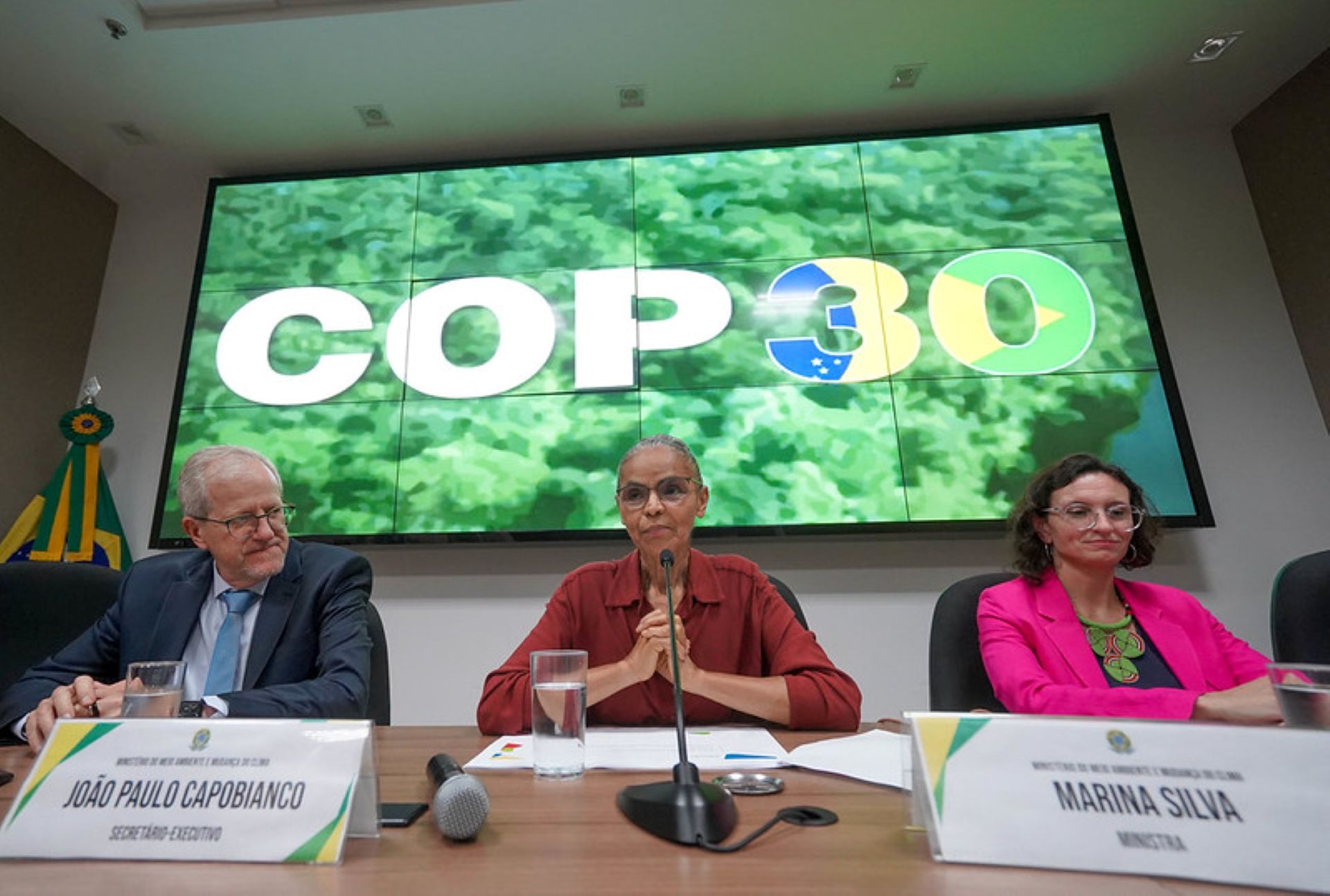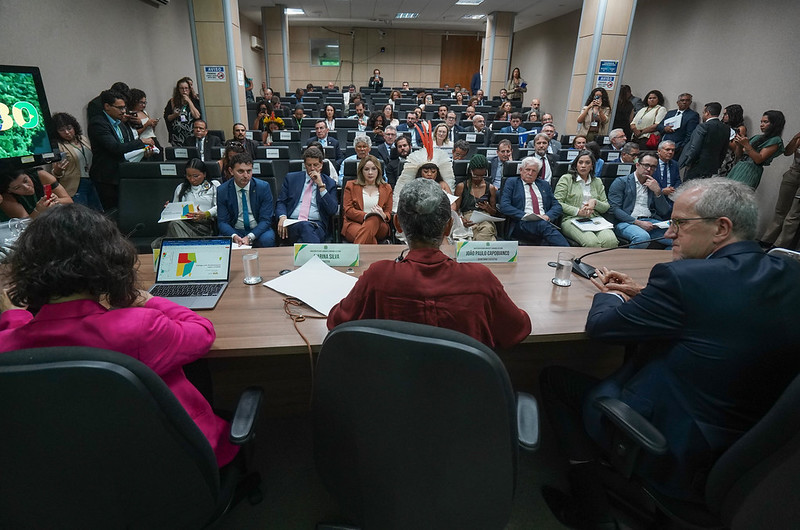Brazilian federal government holds meeting with federal deputies to set COP30 agenda
A meeting with Brazilian federal deputies, attended by MMA Minister Marina Silva, gathered expectations and perspectives from the National Congress on the Climate Change Conference

From Brasil's Ministry of the Environment and Climate Change
On 18 March, the Brazilian government held a meeting with 30 federal deputies to gather the expectations and perspectives of the National Congress on the process of setting the agenda for COP30, the UN Climate Change Conference to be held in Belém, Pará, in November this year.
The meeting with parliamentarians was organized by the Brazilian government, through the Ministry of Environment and Climate Change (Ministério do Meio Ambiente e Mudança do Clima/MMA), Ministry of Foreign Affairs (Ministério das Relações Exteriores/MRE),General Secretariat of the Presidency of the Republic (Secretaria-Geral da Presidência da República/SGPR) and the COP30 presidency, in Brasilia. The meeting was led by the Minister for the Environment and Climate Change, Marina Silva, the MMA's Executive Secretary, João Paulo Capobianco, and the head of the Ministry's Extraordinary Advisory Office for COP30 (ASCOP), Alice Amorim.
"Brazil is hosting COP30 under the dramatic effects of climate change. The debate with the Parliament is fundamental in this context, in which we have only one path left: the implementation of the climate commitments made in the last decade," said the Minister.
Presenting an overview of the negotiations at previous conferences, Alice Amorim stressed that the COP "is not an event, but a negotiating and political process with several stages over the years". "The severity of the climate crisis and the need to act faster, on a larger scale and on more fronts has transformed the COPs and strengthened the role of other political actors in climate action," she said.

Among the topics discussed during the meeting with legislators were the implementation of the Global Stocktake (GST) of the Paris Agreement, just transition, adaptation and mitigation, and progress in the implementation of the regulated carbon market in Brazil.
As part of the preparations for COP30, the Federal government has already held talks with representatives of indigenous peoples and traditional communities. Further dialogues with other sectors of society are planned in the coming months to broaden societal participation in the conference.
COP30
The Conference of the Parties (COP) on Climate is the main global event dedicated to discussions and negotiations related to climate change. The meeting brings together the 198 member countries of the United Nations Framework Convention on Climate Change (UNFCCC) (known as “parties”) to assess the implementation of the agreement and define measures to ensure compliance, as well as establishing new guidelines for mitigating environmental impacts.
Held annually, the COP presidency alternates between countries from the five regions recognized by the UN: Africa, Asia, Latin America and the Caribbean, Central and Eastern Europe, as well as Western Europe and Others.
English version: Trad. Bárbara Menezes
Proofreading: Enrique Villamil
